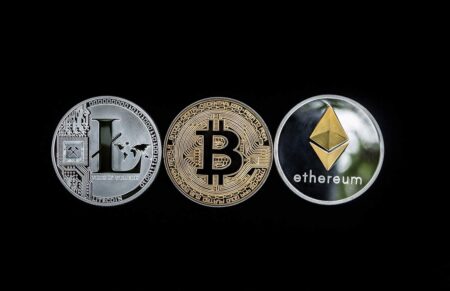Dogecoin is a cryptocurrency that has gained popularity over the past few years. Originally created as a joke, Dogecoin has since become a serious contender in the world of cryptocurrency, with a market cap of over $40 billion as of April 2021.
Despite its origins, Dogecoin has the potential to revolutionize cross-border transactions and international trade.
If you are considering investing in Bitcoin, it may be helpful to visit this Home Page of a trusted cryptocurrency exchange or wallet provider, where you can find valuable information about the digital asset and the various tools and services available to help you invest safely and confidently.
Background on Dogecoin
Dogecoin was created in 2013 by software engineers Billy Markus and Jackson Palmer.
The cryptocurrency is based on the popular internet meme of the Shiba Inu dog, which serves as the Dogecoin mascot.
The creators of Dogecoin intended it to be a fun and lighthearted cryptocurrency, but it quickly gained a following and became a serious player in the world of digital currency.
Lower Transaction Fees
One of the key advantages of Dogecoin is its low transaction fees. Compared to traditional cross-border transactions that can be slow and expensive.
Dogecoin transactions are fast and cheap. This makes it an attractive option for businesses that engage in international trade.
For example, imagine a business in the United States that wants to purchase goods from a supplier in China.
Traditionally, the business would need to go through a bank or payment processor to transfer funds to the supplier.
This process can be slow and expensive, with fees ranging from 1-3% of the total transaction amount.
With Dogecoin, however, the transaction fees are much lower, often less than 1% of the total transaction amount.
This means that businesses can save money on transaction fees and complete transactions more quickly than with traditional payment methods.
Reducing Currency Exchange Risks
Another advantage of Dogecoin is that it reduces the risks associated with currency exchange.
When conducting international trade, businesses often need to convert one currency to another. This process can be risky, as exchange rates can fluctuate rapidly and unexpectedly.
With Dogecoin, however, businesses can avoid these risks by using a single currency for all transactions.
Because Dogecoin is a decentralized currency that is not tied to any specific country or government, it is not subject to the same fluctuations as traditional currencies.
This makes it a more stable and reliable option for businesses that engage in international trade.
Improved Transparency and Security
Dogecoin also offers improved transparency and security for cross-border transactions.
Traditional payment methods often involve multiple intermediaries, such as banks and payment processors, which can make it difficult to track the flow of funds and ensure security.
With Dogecoin, however, transactions are recorded on a public ledger known as the blockchain.
This ledger is maintained by a decentralized network of computers, which ensures that transactions are secure and transparent.
Businesses can easily track the flow of funds and verify that transactions have been completed accurately and securely.
In addition to its potential benefits for international trade, Dogecoin has also garnered attention for its use in charitable giving.
The Dogecoin community has a strong ethos of generosity and has raised funds for a number of charitable causes, including clean water initiatives and disaster relief efforts.
The low transaction fees and fast transaction times of Dogecoin make it an attractive option for charitable giving, as it allows funds to be transferred quickly and efficiently without incurring high fees.
Despite its potential benefits, there are still challenges to be overcome before Dogecoin can become a widely accepted currency for cross-border transactions and international trade.
One major challenge is the volatility of cryptocurrency markets, which can make it difficult for businesses to predict the value of their transactions.
Additionally, there are still regulatory hurdles to be addressed, as many countries have not yet established clear guidelines for the use of cryptocurrency in international trade.
Conclusion
In conclusion, Dogecoin has the potential to revolutionize cross-border transactions and international trade.
Its low transaction fees, reduced currency exchange risks, and improved transparency and security make it an attractive option for businesses that engage in global commerce.
While there are still challenges to be overcome, such as the volatility of cryptocurrency markets, the potential benefits of Dogecoin cannot be ignored.
As the world becomes increasingly interconnected, it is likely that we will see more businesses turning to cryptocurrency as a way to facilitate cross-border transactions and streamline international trade.








